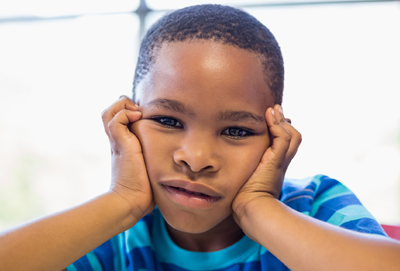 Depression in teens is a serious issue that if left unaddressed can lead to a variety of negative consequences. Teenagers, like adults, have an increased chance of becoming depressed during the holiday season. This affliction alters how young people think and feel, and can lead to behavioral issues. In some cases, being depressed can even cause teenagers to experience physical distress. It is important to keep in mind that adolescence is a tumultuous time that will cause teenagers to have many highs and lows emotionally. Because of this, there is no need to panic if a teenager seems a little sad occasionally. However, the state of being clinically depressed in teenagers is a very real condition and it is important for parents and loved ones to recognize the signs. Reasons Adolescents Become Clinically Depressed A central cause of an individual becoming clinically depressed has not been identified but there are a variety of causal factors. • Biochemical Factors- Neurotransmitters are responsible for the transfer of signals throughout the brain and nervous system. When Neurotransmitters do not function properly one result can be the increased likelihood that an individual can become depressed. • Hormonal Disruption- Sudden changes in the body’s hormones can cause teenagers to become depressed • Genetic- Adolescents that have relatives who have been diagnosed as clinically depressed are at a higher risk of developing the disease themselves • Traumatic Childhood Events- Trauma experienced in childhood can increase the chances of an individual suffering from being depressed in adolescent years. Symptoms Of Clinically Depressed Teenagers The signs and symptoms for clinically depressed teenagers can vary greatly in severity but often include obvious changes in attitude and behavior. These changes often manifest in dysfunction at home, in school, or in social behaviors. I would suggest that parents closely monitor their teenagers if seeing any of the following behaviors: • Expressions of sadness, especially crying for no known reason • Sudden irritability • Feelings of hopelessness • Anger and frustration over small matters • Lack of interest that once was a source of enjoyment • Inability to get along with family and friends • Grim outlook on future • Inability to reason, concentrate, or to remember things This is by no means an exhaustive list of signs a teenager may be suffering from the effects of being depressed but presents an idea of things to be aware of. I would also like to reiterate the point that adolescence is a time of intense turmoil in the life of teenagers and many of these issues may be seen occasionally in teens who are not clinically depressed. A good barometer to use is if these feelings are accompanied also by sudden changes in behaviors like: • Lethargic behavior • Extreme change in sleeping habits • Sudden changes in appetite • Drug and alcohol usage • Restlessness or inability to sit still • Neglectful of hygiene or appearance • Disruptive behavior at home or school • Poor performance at school, especially if the teenager was previously a good student When To Seek Professional Help If a teenager that you suspect is depressed continues to exhibit any of these symptoms it is important to talk with a doctor or mental health expert that has experience working with adolescents. The school or family doctor of the teen is a good place to look for resources or references to seeking out any help a teen may need. Teens suffering from clinical depression are unlikely to get better on their own and this disorder can subject them to many consequences, both immediate and long-term if left untreated. Depressed teenagers are at a higher risk for suicide, alcohol and drug abuse, delinquency and a host of other potential problems. When To Seek Emergency Help Thoughts of suicide are often a byproduct of clinical depression in teenagers. Do not take any chances when a teen expresses suicidal thoughts or feelings. Always err on the side of caution and assume any thoughts of suicide to be a credible threat. Final Thoughts Teenagers that are clinically depressed is a serious issue and should be addressed with the necessary diligence. Teenagers that are clinically depressed are at risk for a number of negative consequences that can have adverse effects on their futures. Adolescent angst is normal and should not be confused with the more serious condition involving clinically depressed teenagers. It is important for parents and loved ones to first know the signs and symptoms of a teen that is clinically depressed, and then to seek out the help the teen needs.
3 Comments
1/9/2021 04:40:24 am
I loved your article.Really looking forward to read more.
Reply
1/21/2021 06:43:46 am
I find it alarming that depressed teens would have problems communicating with other people along with weird mood swings. My friend told me that his niece is showing these symptoms lately, and she prefers to be alone nowadays. I should probably help him look for a counselor that can help her case.
Reply
3/6/2024 06:41:08 am
Indeed, teen depression is a serious issue. If left untreated, it will lead to further complications. Recognizing the early signs of depression in teenagers is essential to taking immediate actions, such as providing counseling and seeking professional help.
Reply
Your comment will be posted after it is approved.
Leave a Reply. |
Archives
January 2024
Categories
All
|
|
|
Share This Page
Greater Houston Counseling Services
"Making your day a little easier" Phone: (832) 717-7166 |
Four locations across the Houston area |

 RSS Feed
RSS Feed